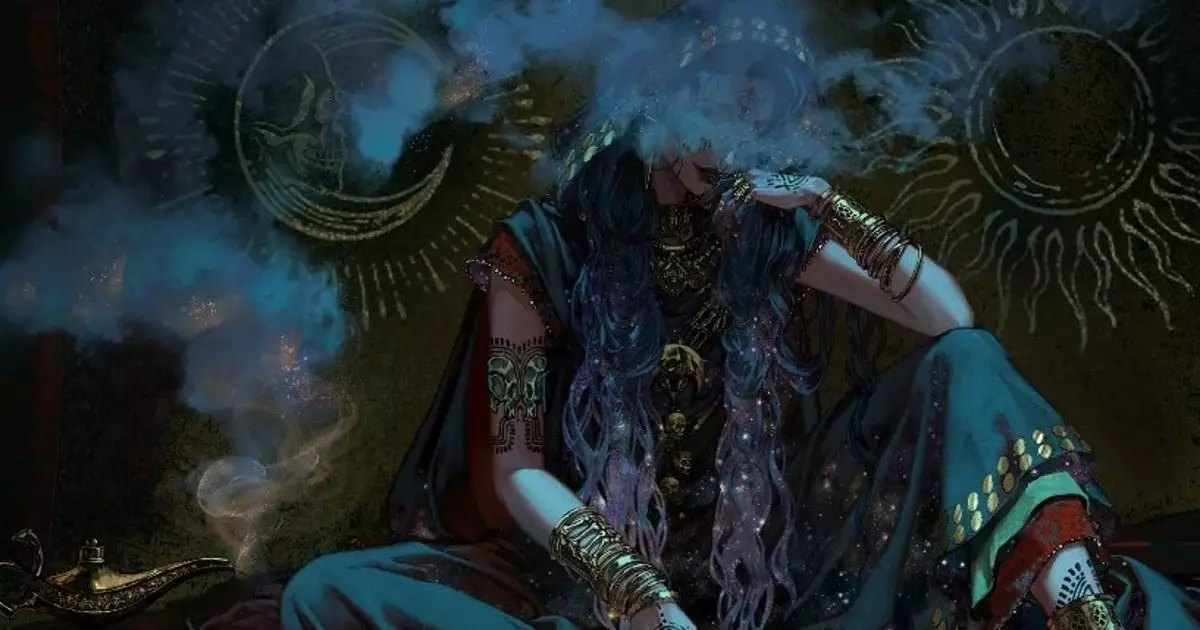Sultan’s Game draws players into a world brimming with complexity and moral ambiguity, creating an experience that is both fascinating and perplexing. As someone who has delved into various gaming realms, I find that this title stands out not only due to its mechanics but also its audacious narrative themes. Though I am merely at the beginning of my journey through this game, I feel the urge to reflect on its intriguing and often unsettling nature. The balance between elegance and chaos in Sultan’s Game is reminiscent of indie darlings like Cultist Simulator but with a palpably darker twist.
The first thing that captures your attention in Sultan’s Game is its striking art style, evocative of both classical and contemporary influences. The aesthetic seems to straddle the line between the lush visuals of Hades and the dream-like quality of Yoshitaka Amano’s art from 1001 Nights. This rich visual tapestry sets the stage for an atmospheric experience that deepens with a haunting soundtrack. The auditory elements complement the visuals magnificently, crafting a layered experience that both immerses and disorients the player.
When confronted with the tutorial—only a fraction of the larger experience—it becomes evident that the narrative hinges on a character known as the Sultan. He symbolizes excess and darkness, having grown weary of earthly pleasures until a mysterious magician introduces him to a deck laden with temptation. This card system, comprising various thematic flavors such as carnality, bloodshed, conquest, and extravagance, lays the foundation for the player’s choices and consequences throughout the gameplay.
As players assume the role of different characters within the Sultan’s realm, the nature of the Sultan himself quickly reveals a deeper commentary on power and its inherent corruption. The Sultan is not merely a ruler; he embodies a tyrant whose will enforces a mechanistic approach to relationships. One could argue that he showcases the darkest potential of absolute power, dispassionately snapping the neck of his consort as he resolves his initial card—a testament to the horror that underlies the gameplay.
This initial encounter sets the tone for the ensuing complexities. As players progress, they encounter tasks that demand morally ambiguous decisions, presenting courtiers not as allies but as expendable resources to achieve greater ambitions. The comparison to resource management games, like Frostpunk, weaves in layers of efficiency infused with a chilling sense of tyranny.
Once players step beyond the Sultan’s immediate presence, they engage in a narrative-driven worker placement system. After creating a character with a small entourage, players are thrust into the delicate balancing act of managing relationships while fulfilling the demands of their drawn cards. The seven-day time limit to resolve each card introduces an urgency that instills a constant sense of dread, underscoring the consequences of failure.
What complicates matters further are the separate trackers for reputation and influence within the realm. Players find themselves faced with multifaceted dilemmas—should they invest in strengthening their domestic affairs or look toward the political currents within the palace? One’s actions ripple outward, affecting not just one’s immediate circle but the delicate dynamics of the court and beyond.
The sheer volume of interactions, card dynamics, and character roles creates an overwhelming tapestry that can be difficult to navigate. The connections between seemingly disparate elements can lead to bewilderment, yet this chaos, responsibly managed, reveals a depth of storytelling that is both rewarding and hauntingly beautiful.
Despite the initial disorientation—inevitable with any rich and dense narrative exploration—there lies within Sultan’s Game a tantalizing promise. Even amidst the macabre themes of murder and betrayal, the game pulsates with vibrant ideas, redefining what it means to engage with a narrative.
As I continue to delve deeper into this world, there is an electrifying sense of discovery and intrigue. Each card drawn, every decision made, serves as a springboard for further exploration into the enigmatic fabric of this realm. Sultan’s Game invites players to confront difficult choices while reveling in the lush aesthetics and haunting sounds of its universe.
While Sultan’s Game may not be for everyone, it poses an engaging challenge to those willing to partake in its dark narrative journey. The potential questions it raises about morality, choice, and the exercise of power make it a game worth exploration—provided players are prepared for the complexities that await them.

